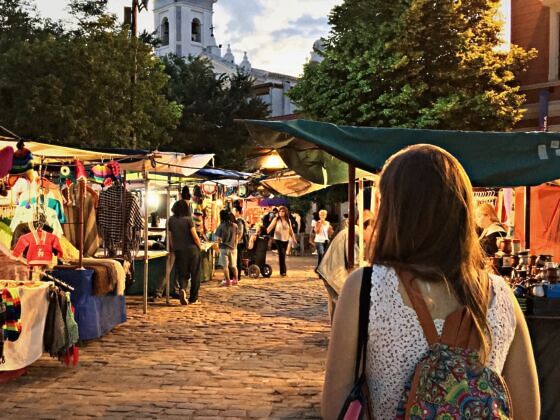Inflation is sending plenty of people in the US into a panic. The roughly nine percent knock-up is impacting gas prices, groceries, and travel expenses like airfare, hotels, and rental cars. However, the rate of inflation in Argentina is far worse. The Argentinian peso is expected to reach inflation of 90 to 92 percent by the end of the year. So if you booked a trip to Buenos Aries or anywhere else in the region, you’re going to want to know how to make sure you’re getting the most out of your money.


How to Use Argentina’s Black Market Exchange Rate to Combat Hyper-Inflation When Visiting
Inflation is a perpetual problem in Argentina that locals have been forced to adapt to. The country’s experience with inflation also means there are built in ways that travelers can navigate spending money while on vacation.
A TikTok from Brigham Dallas recently explained Argentina’s hyperinflation and how he was able to make his money stretch longer using US dollars in cash versus a credit card.
@brighamdallas Argentina’s currency: 135 pesos to $1 ar tbe bank, 290 pesos to $1 on the black market. Hyperinflation!
It should be noted that Dallas received such a favorable rate because he traded cash on the Dolar Blue, which isn’t regulated by any bank or government agency, instead of at an officially sanctioned location. At the Dolar Blue 290 peso to $1 exchange rate, he would’ve walked out with a bit under 360,000 pesos. But at the current formal exchange rate, he would’ve received around 200,000 less pesos than he did trading on the unofficial “blue market” exchange rate. Dolar Blue is popular among tourists and locals alike to exchange cash for a better rate than one would get at a bank or ATM.
@uptin #inflation #argentinatiktok #economics ♬ original sound – Uptin
Some experts say that current fears of hyper-inflation in the country are overblown. Argentina’s chief debt negotiator Daniel Marx told Bloomberg that the high surges were caused by the abrupt departure of the former economy minister, Martin Guzman. Sergio Massa is set to soon take his place. Marx will serve on the minister’s advisory committee to aims to boost foreign reserves, ensure Treasury financing and bolster the local debt market, hopefully moving the country closer to a singular exchange rate that’s easier for locals and tourists to manage without looking for workarounds.